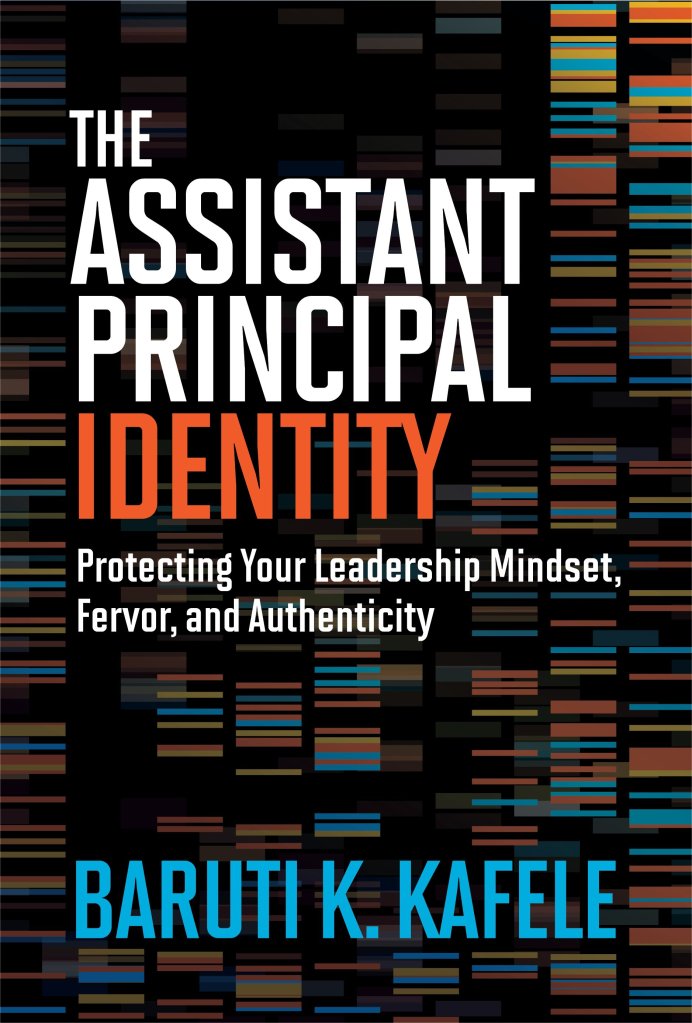Building an Identity as Assistant Principal
By carefully developing key leadership skills, assistant principals can ensure that they accomplish their goals without burning out.
Your content has been saved!
Go to My Saved Content.How Am I Protecting My Leadership Experience?
When I was a rookie assistant principal, my principal asked me to make 100 photocopies of the staff handbook that he compiled. The request was made on the last Friday of August in the afternoon, and the teachers were returning to school from summer break that following Tuesday, after Labor Day. The handbook was about 70 pages long. We had one large volume copier in the school, and it was not designed to collate 70 pages. This meant that I had to make 100 copies of each page separately and collate manually. Let that marinate for a moment. It took me all of Saturday, Sunday, and Monday because although the copier was high volume, it was not high speed. But by Tuesday morning, I handed the principal the boxes with the staff handbooks.
This happened 25 years ago, but it’s still in me to this day. It stayed with me throughout my principalship—not because of the drudgery but because I never wanted to be guilty of treating anyone in my school in a similar fashion. I kept that experience close to the vest and ensured that I never asked anyone to do anything that I wouldn’t do myself. I cannot fathom asking someone to spend a weekend on a project in the building while I am at home enjoying time with my family. I needed to protect that experience, which occurred very early in my leadership journey, as a reminder and an example of how not to treat the people who work for me, as opposed to simply dismissing it as a bad experience and moving on from it.

Most of you are going to move into a principalship. Along the way, you will accumulate a wealth of experience from your days as an assistant principal and as a teacher. Those years of experience are going to be invaluable to your continued leadership growth and development, particularly if you choose to move to the central office. You must protect those experiences. Throughout your leadership journey, you are going to encounter endless challenges, and how you handle them will be rooted in your collective leadership experiences. Those experiences will be your frame of reference. Although you will have grown in your leadership, you must never divorce or detach yourself from your experiences. They comprise who and what you are as a leader and are your foundation, and the lessons learned from them are immeasurable. You must protect your experiences by always leaning on them for guidance and not discount or run away from those that were less than favorable. I kept all of my experiences close to the vest; both the recent ones and the ones from the past that I would have preferred to have forgotten, such as the Labor Day weekend with the copier machine. We learn from our successes and failures and everything in between, so protecting those experiences matters.
What About You?: Making decisions doesn’t necessarily happen in a vacuum. Our current decisions are often rooted in our previous experiences. That is, our previous experiences often influence current actions. In leadership, your previous experiences can never be ignored. How are you using your previous experiences to enhance your leadership? How are you using your previous experiences to inform your current decision making? How are you using your previous experiences to frame your current leadership practices? How are you using your previous experiences to enhance your leadership? How are you protecting your experiences as a leader?
Again, when I say protecting your experiences, I mean intentionally making your experiences in leadership and beyond an integral part of your current leadership journey. Your previous experiences are who you are. You can never fully detach yourself from them because they are a part of your foundation. It is quite normal for me to share my most difficult years as an adolescent, a young man, a teacher, an assistant principal, a principal, and even as a presenter because they are the foundation on which I stand today. By not hiding or running away from them, I am essentially protecting them. You, too, must protect your experiences and use them as leverage to get where you want to go.
How Am I Protecting My Leadership Work Ethic?
At the beginning of my career as a principal, I was an unapologetic workaholic. I put in 12 to 14 hours on weekdays and 16 hours on weekends... in the building. Looking back on it now, I put in that many hours because I simply didn’t know better. My assistant principalship didn’t prepare me for anything else. I boasted to people that I was putting in almost 90-hour weeks and challenged others to do the same. I measured my worth in part by the number of hours I lived in that school every week. Although I worked a tremendous number of hours, I didn’t necessarily work smart for all of those hours. I was on the fast track to burnout, a mental or physical breakdown, and a lack of balance in my personal/family life. I had a solid work ethic but a substandard leadership work ethic. My work ethic as it was wasn’t going to put me in a position to a long career—and longevity matters.
Over time, I learned how to recognize, acknowledge, and use the talents of the people around me and reduced my time in the building by 30 to 40 hours per week. This in turn brought balance to my life and made me more productive. I’d raised the level of my leadership work ethic and was no longer simply going through the motions of working. To sustain my newfound work ethic, I had to protect it by not allowing myself to slip back to where I was.
What About You?: In your assistant principal capacity, how many hours are you putting in each day and week? Are you putting in hours on the weekend as well? If so, how many hours? In what ways are you using the human capital around you? Have you contributed to the culture of your school in ways that make staff willing to do more? Is your work ethic productive for your school? How do you go about protecting your work ethic?
As was the case with me, there will be a temptation to put an exorbitant amount of time into your leadership, particularly when you are a new leader or preparing for a principalship. But putting in that much time does not necessarily translate to a good work ethic. It just means that you spend a lot of hours working, and many of those hours may be nonproductive or counterproductive. You must protect your work ethic by ensuring that your time spent on the job is productive. There are not enough minutes in the day to be counterproductive, particularly in leadership. Protect your work ethic by ensuring that you work hard... and smart.
From The Assistant Principal Identity: Protecting Your Leadership Mindset, Fervor, and Authenticity (pp. 54–58) by Baruti K. Kafele, Arlington, VA: ASCD. Copyright © 2023 by ASCD. All rights reserved.
